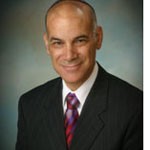By Rabbi Leonard Rosenthal

SAN DIEGO–On Thursday morning, the last day of Chanukah, Sol Minsberg gave me an article to read after minyan. It was published on the website of Reform Judaism (www.rj.org).
Its author, William Berkson, points out the how Chanukah is understood in Israel versus the United States.
“In Israel, Chanukah is largely a celebration of national independence of the Jewish people, and the survival of the second Jewish commonwealth, the third being today’s state of Israel.
“In the United States, Chanukah is a somewhat anxious attempt to deal with the problem of separateness and assimilation. We give presents on Chanukah, in imitation and rivalry with the Christmas celebration of the majority, but also prize Chanukah as a symbol of the survival of the uniqueness as a people.”
Jews in the United States feel a tension and disparity between their Jewish and American identities. We are often pulled between the two, especially at this time of year. It is possible, however, to live as a Jew within a majority culture without feeling such pressures. The Biblical Joseph tells us how.
When Joseph brought his father, brothers, and their families down to Egypt he introduced them to Pharaoh and told them to make this request:
“We have come to sojourn in this land, for there is no pasture for your servants’ flocks, the famine being severe in the land of Canaan. Pray, then, let your servants stay in the region of Goshen.” (Gen. 47:4)
In response Pharaoh said to Joseph: “As regards your father and your brothers, who have come to you, the land of Egypt is open before you: settle your father and your brothers in the best part of the land; let them stay in the region of Goshen.” (Gen. 47:5-6)
We can see from Pharaoh’s response that he did not have a problem with the Israelites settling anywhere in Egypt (“the land of Egypt is open before you”). It was the Israelites who wanted to separate themselves in Goshen, far from mainstream Egyptian life.
Even though Joseph had previously told his brothers to live in Goshen to protect them from the Egyptians who hated shepherds, one cannot help but think that Joseph also wanted to prevent his brothers and their families from assimilating into Egyptian society. Being physically separated from mainstream Egypt, there were few opportunities for the Israelites to experience, be attracted to, or adopt Egyptian religion and culture.
Although it is difficult, it is still possible for Jews today to take the same approach. It is possible to physically separate ourselves from mainstream American life. An example of one such community is the Chassidic Jews who populate the town of New Square in Rockland County, New York. The Jews of New Square have created a virtual shtetl amidst the modern towns and cities of upstate New York. Only Chassidic Jews live there. No one else would want to!
Judy and I drove through New Square many years ago and found it to look more like 19th central Europe than 20th century America. All the men had beards, payes, and long coats, and the women dressed humbly and modestly. Needless to say, the Jews of New Square are very traditional, and not coming into much contact with their neighbors. Acculturation and assimilation are not much of a problem.
For most of us, however, this is not an acceptable answer. Like the Maccabees of old, we want to embrace the positive aspects of contemporary culture while at the same time, adhering to our own unique religious and culture identity. If this means there will be tension and conflict in our lives between the two poles of “Jew” and “American,” so be it. It is better than being forced to make a choice.
*
Rabbi Rosenthal is spiritual leader of Tifereth Israel Synagogue in San Diego